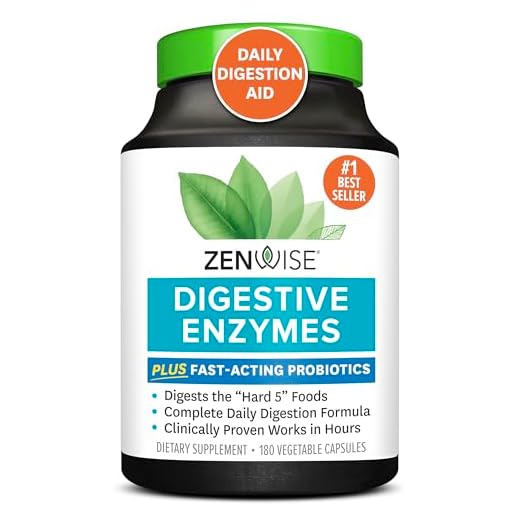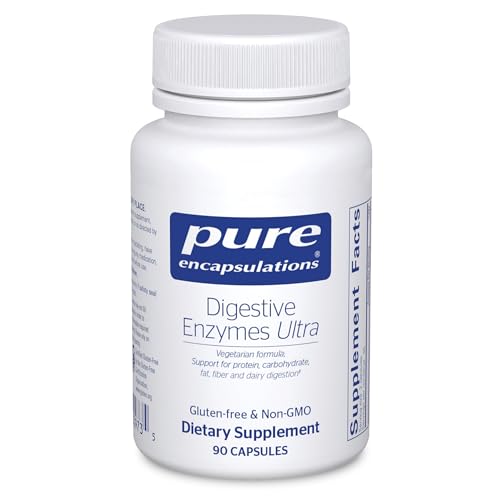



When it comes to the intricate processes taking place within the human body, there exists a fascinating mechanism that plays a crucial role in maintaining our health and wellbeing. This mechanism involves the efficient uptake and utilization of protein, a vital nutrient that serves as a building block for various tissues and molecules in the body. Understanding the rate at which our organism absorbs protein is an essential aspect of optimizing our dietary choices and promoting overall wellness.
Envision this: Imagine your body as a highly complex network of interconnected pathways, constantly working to fuel your daily activities and maintaining your physiological balance. In this intricate system, protein absorption emerges as a fundamental process, akin to a well-coordinated dance of molecules.
Consider the significance: Every bite you take containing protein-rich food undergoes a series of remarkable transformations as it journeys through your digestive system. From the moment you chew your food to the breakdown and assimilation of proteins by your body’s cells, a series of intricate steps unfold, each playing a critical role in protein absorption.
Understanding Protein Absorption: How Your Organism Processes This Essential Nutrient
Protein absorption is a fascinating metabolic process that plays a crucial role in sustaining and rebuilding the body’s tissues. When ingested, proteins are broken down into smaller molecules, which are then absorbed into the bloodstream through the digestive system. Understanding how your body processes protein can provide valuable insights into optimizing your dietary habits and achieving your fitness goals.
Protein Digestion and Absorption in the Gut
The journey of protein absorption begins in the gastrointestinal tract, where ingested proteins undergo a series of intricate processes. Upon reaching the stomach, proteins are broken down into amino acids and peptides through the hydrolysis process facilitated by gastric enzymes. These smaller protein fragments further enter the small intestine, where pancreatic enzymes continue the breakdown process into individual amino acids.
The lining of the small intestine is lined with villi, tiny finger-like projections that increase the absorption surface area. These villi harbor numerous specialized cells that play vital roles in the absorption of nutrients, including amino acids derived from protein digestion. Through various transport mechanisms, amino acids are transported into these cells and then released into the bloodstream, where they can be distributed to different organs and tissues.
Factors Affecting Protein Absorption
Several factors influence the efficiency and rate of protein absorption in the body. One significant factor is the quality and composition of the ingested protein. Different sources of protein contain varying amino acid profiles, which can affect the speed of digestion and absorption. Additionally, the presence of other macronutrients, such as carbohydrates and fats, in a meal can also influence protein absorption rates.
The digestive health and overall function of the gastrointestinal tract also play a crucial role in protein absorption. Certain health conditions and underlying gut disorders may impair the ability of the intestines to absorb nutrients properly, including proteins. Additionally, the individual’s metabolic rate, physical activity level, and overall health status can impact protein absorption rates.
Optimizing Protein Absorption for Maximum Benefits
To optimize protein absorption and ensure its maximum benefits, several strategies can be implemented. Consuming a diverse range of high-quality protein sources, such as lean meats, dairy products, legumes, and plant-based proteins, can provide a variety of essential amino acids required for optimal absorption. Pairing protein-rich foods with a balanced meal that includes carbohydrates and healthy fats can also promote efficient protein digestion and absorption.
Incorporating regular physical activity into your routine can further enhance protein absorption by promoting the synthesis of muscle proteins. Additionally, maintaining good gut health through a balanced diet, adequate hydration, and stress management techniques can support optimal nutrient absorption, including proteins.
- Choose a diverse range of high-quality protein sources
- Incorporate carbohydrates and healthy fats into protein-rich meals
- Engage in regular physical activity to enhance protein synthesis
- Maintain good gut health through a balanced diet and stress management
In conclusion, understanding how your body processes protein is key to optimizing its absorption and reaping the benefits of this essential nutrient. With the right dietary choices, lifestyle modifications, and overall good health, you can support efficient protein absorption and promote the maintenance and growth of your body’s tissues.
Protein Assimilation: The Fundamentals
In the realm of nourishment, the speed at which our system incorporates and utilizes protein is a topic of great significance. Understanding the basics of protein assimilation aids to unravel the intricacies of this physiological process.
Factors Influencing Protein Absorption in the Human Body
When considering the process of protein absorption within the human body, it is essential to recognize that several key factors can affect this vital physiological function. Understanding these factors can shed light on how the body efficiently utilizes and assimilates protein for various biological processes.
One critical factor in protein absorption is the source of the protein consumed. Different protein sources, such as animal-based proteins (e.g., meat, fish, dairy) and plant-based proteins (e.g., legumes, nuts, grains), have varying digestion and absorption rates. Animal-based proteins generally contain higher levels of essential amino acids, facilitating their absorption and utilization by the body.
The individual’s digestive health also plays a crucial role in protein absorption. The presence of any gastrointestinal conditions, such as irritable bowel syndrome or celiac disease, can affect the body’s ability to break down proteins, impairing absorption. Additionally, the overall health of the digestive system, including the quality and diversity of gut bacteria, can impact the efficiency of protein absorption.
The nature of food preparation can also influence protein absorption. Cooking methods, such as grilling or boiling, can modify the protein structure and potentially enhance or inhibit digestion and absorption. Furthermore, food processing and refining can alter the protein composition, potentially affecting its bioavailability and absorption in the body.
It is worth mentioning that protein absorption is closely related to the presence of other macronutrients, particularly fats and carbohydrates. Co-ingestion of these nutrients can influence the rate and extent of protein absorption. For instance, the consumption of carbohydrates stimulates the release of insulin, which promotes amino acid uptake by muscles, thereby enhancing protein absorption.
| Factors Affecting Protein Absorption | Description |
|---|---|
| Protein Source | Different protein sources have varying digestion and absorption rates. |
| Digestive Health | Gastrointestinal conditions and overall gut health can impact protein absorption. |
| Food Preparation | Cooking methods and food processing can modify protein structure and bioavailability. |
| Co-ingestion of Macronutrients | Fats and carbohydrates can influence the rate and extent of protein absorption. |
In conclusion, while protein absorption in the human body is a complex process, understanding the various factors that affect it can provide valuable insights into optimizing protein intake and utilization for optimal health and performance.
Protein Digestion Rate: Comparing the Speed of Fast and Slow Absorption
In the realm of protein absorption, the rate at which our body processes and utilizes protein can vary significantly. This article delves into the comparison between fast and slow digesting proteins, exploring their absorption speed and the implications for our overall health and fitness goals.
The Importance of Protein Absorption Rate
When it comes to protein intake, the speed of absorption is a crucial factor to consider. Understanding the differences between fast and slow digesting proteins can help individuals tailor their dietary choices to their specific needs and optimize the benefits they can derive from protein consumption.
Faster Digestion with Fast-Absorbing Proteins
- Fast-absorbing proteins are characterized by their ability to be quickly broken down and assimilated into the bloodstream.
- These proteins, such as whey protein, contain amino acids that are readily available for the body to use for muscle repair, growth, and overall recovery.
- Individuals seeking immediate post-workout recovery or time-restricted feeding may opt for fast-digesting proteins due to their rapid absorption rate.
Long-Lasting Sustenance with Slow-Absorbing Proteins
- Slow-absorbing proteins, like casein protein, are characterized by a more prolonged digestion process.
- These proteins form a gel-like substance in the stomach, which slows down the rate at which amino acids are released into the bloodstream.
- As a result, slow-absorbing proteins provide a sustained release of amino acids over an extended period, promoting muscle recovery and reducing muscle breakdown during periods of fasting or sleep.
Understanding the differences between fast and slow digesting proteins allows individuals to make informed decisions about their protein sources based on their specific needs, goals, and daily routines. Whether one seeks quick recovery or sustained nourishment, selecting the appropriate protein absorption speed can greatly enhance overall well-being and performance.
Maximizing Protein Absorption: Tips for Optimal Nutrition
Enhancing the rate of protein assimilation within our physiological framework is essential for achieving peak nutritional benefits. Here are some practical strategies to optimize protein absorption and maximize its impact on our overall well-being.
FAQ,
Is it true that the body absorbs protein quickly?
Yes, the body does have the ability to absorb protein quickly. When you consume protein-rich foods, such as meat, fish, eggs, or dairy products, your body breaks down the protein into its amino acid components. These amino acids are then absorbed into the bloodstream and transported to various parts of the body where they are used for building and repairing tissues.
How long does it take for the body to absorb protein?
The time it takes for the body to absorb protein can vary depending on several factors. Generally, it takes about 3 to 4 hours for the body to fully digest and absorb protein from a meal. However, the absorption rate can be influenced by factors like the type of protein consumed, the presence of other nutrients, the individual’s metabolism, and overall health. For example, whey protein is known to be quickly absorbed by the body, whereas casein protein is absorbed at a slower rate.









